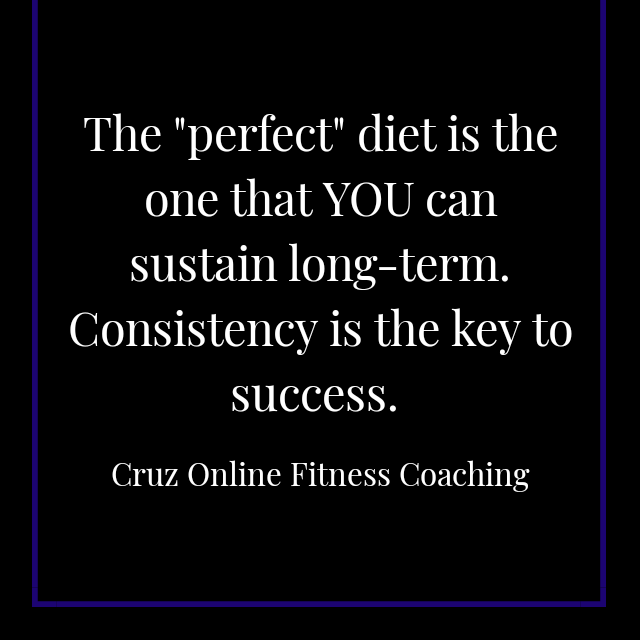The health and fitness world is filled with popular fads that usually have half the world being zealots and the other half being extreme sceptics.
There are very few that seem to want to be reasonable and accept that there are many tools and strategies available that work well for some and simply fall short for others.
The truth is that there is NO weight loss and/or fitness strategy that works for everyone.
Nor are there any that provide magical results that negate the fundamentals of health and fitness (i.e, caloric intake, frequent exercise, sufficient sleep, sustainability, etc).
The case will always be that there are some strategies that work well for some while being ineffective for others.
Intermittent fasting is no exception.
Before I get too far ahead in this article on intermittent fasting for weight loss, I’d like to point out that when selecting ANY weight loss strategy, your main concern (other than safety) must be how the strategy will work for YOU, i.e, how the strategy fits into your lifestyle and matches your particular and unique preferences.
As obvious as that may seem, many continue to ignore this and continue to adopt strategies simply because they are “what’s new” or because they helped a friend, family member, etc lose weight.
Just because a weight loss strategy helped your best friend’s mother lose 10-15 lbs in 3 weeks does not mean it is the right strategy for YOU!
Now, I am ALL for trying new things as long as they are safe and practical.
However, the problem is that when results are not seen, the strategy is bashed or the individual is overcome with guilt, feeling as though they did something wrong.
(Though it is common for individuals to not follow a strategy correctly) the issue usually lies in the simple fact that the strategy simply was NOT for them.
It was not a good fit for that particular individual’s preferences, nor lifestyle.
Key Point: Too many choose weight loss strategies simply because they are “what’s new” or because they worked for someone they know, without considering the strategies practicality for them.
We are all so different as individuals and for this reason, we must always consider our individuality when selecting any weight loss strategy.
Ask yourself, is the strategy a good fit for your personal preferences and your lifestyle? If it seems safe and practical, then, by all means, give it a try!
The point I am trying to make here is that intermittent fasting, like any weight loss strategy, will work wonderfully for some individuals and fail every time for others.
That’s just how it works!
With that out of the way (i.e, pointing out that intermittent fasting is NOT some magical weight loss solution and is NOT a strategy that will work for everyone), let’s get started!

What is Intermittent Fasting?
Intermittent fasting (IF) is an eating pattern in which individuals purposefully limit the amount of time that they eat (e.g, giving oneself an 8-hour eating window followed by a 16 hour period of fasting).
The individual goes extended periods of time (e.g., 14–48 h) with little to no energy intake while spending the rest of the time eating as they normally would (ad libitum).
Whether fasting for 14 hours or 2 days, the goal is to limit the amount of time that you eat in the hopes of decreasing your caloric intake.
There are some other possible benefits that may be produced through intermittent fasting, although I am not going to go over any of those in this article.
It should be noted, however, that many of these benefits are only shown in rodent subjects and/or are unable to be shown to be produced by the caloric deficit created (and weight loss achieved by that deficit) or the actual fasting protocols themselves.
For more information regarding the possible health benefits of intermittent fasting (e.g, improved metabolic health) see these articles:
- https://www.ncbi.nlm.nih.gov/pmc/articles/PMC5411330/
- https://www.ncbi.nlm.nih.gov/pmc/articles/PMC4516560/
- https://www.ncbi.nlm.nih.gov/pmc/articles/PMC5783752/
Intermittent Fasting is an eating pattern in which the individual limits the amount of time that they eat (through alternating eating and fasting windows) in the hopes of decreasing caloric intake, and therefore producing weight loss.
Intermittent Fasting Schedules
- 16:8: One of the most common splits is 16:8. This pattern is a split of 8 hours of feeding and 16 hours of fasting (e.g, Eating window: 10 am- 6 pm, Fasting: 6 pm- 10 am). This is one of the more practical forms of IF and the one which I use on most days. I use IF (and this particular ratio) for 2 key reasons, 1) I find it easier to create a caloric deficit and/or control caloric intake, and 2) I don’t like eating breakfast on most days, so it is a perfect fit for my particular eating preferences. You must remember, however, that skipping meals is not a fool-proof way to create a caloric deficit because it is very easy to overeat during your eating window and in turn, negate those skipped meals (which I have had happen to me many times).
- 5:2 Split: Another common split, this one has the individual eating as they normally would for 5 days a week followed by 2 days of fasting. An altered version of this pattern is taking in very little calories (such as 20% of TDEE or less) on the 2 fasting days instead of withholding calories completely. This can obviously be much more sustainable for most while still being a fairly effective strategy.
- 14:10: This split is a bit more realistic for the average individual and consists of 10 hours of feeding with 14 hours of fasting (e.g, 9 am- 7 pm feeding and 7 pm- 9 am fasting). I recommend that anyone wishing to try Intermittent Fasting start at or before this ratio to allow themselves to become accustomed to the eating pattern.
Many attempts to jump right into long periods of fasting just to fail and claim that Intermittent Fasting “doesn’t work”.
“Slow and steady wins the race” when making most changes while drastic alterations usually lead to failure.
It is almost always most effective to ease your way into a strategy rather than completely altering your way of doing things by jumping right into something new.

2 Common Reasons Why Intermittent Fasting (IF) Fails in Producing Weight Loss:
- Intermittent Fasting is not sustainable for some individuals: The individual cannot sustain the diet long enough to see results or cannot sustain it long-term and therefore they may have lost weight but due to discontinuing IF, they regain the weight later down the road
- No caloric deficit is created: Remember, all weight-loss diets work in the short-term if the individual is in a caloric deficit. Many overeat during their eating window and therefore negate the fact that they are skipping a meal (or meals) and do not end up in a deficit. No caloric deficit = no weight loss.
Click HERE to download the PDF of this article, available to read anytime.
My Experience with Intermittent Fasting and Some Advice
As I mentioned earlier, I have followed a 16:8 intermittent fasting pattern for several years now and I find it very suitable for me.
I find it much easier to create a caloric deficit and it seems very natural for me (considering that I usually do not like eating early in the morning).
During the first week or so of intermittent fasting I felt very deprived throughout the last several hours of the fasting period, however, after that initial week or so, I felt fine and have had very few times in which I felt I truly wanted to eat until 10 am (the beginning of my eating window).
Something I like to tell individuals adopting any weight loss strategy is to remember that there must be a balance between leniency and restrictiveness in any diet.
Too lenient and you will never see results. Too strict and you will likely never sustain the strategy long-term.
The way this pertains to intermittent fasting is that if you feel like eating breakfast one morning, eat! One day is not going to ruin your progress, nor negate any benefits that intermittent fasting may have.
While you need to be consistent (especially in the beginning), going slightly off course for a day or so (i.e, eating breakfast and/or “breaking your fast”) every month or every few months isn’t going to produce failure (and if anything will allow the strategy to be more sustainable and therefore increase the likelihood of success).
Having said that, if you find yourself falling off track for days or a week each time that you “break” your diet, then this does not apply to you.
Another thing I’d like to point out is transitioning into intermittent fasting. More specifically, easing your way into this eating pattern to increase your chances of success.
Many jump right into an intermittent fasting schedule without allowing any time to become accustomed to it.
We have to remember that drastic changes/alterations to our normal way of doing things are a poor strategy (the majority of the time).
It is usually much wiser to take small, incremental steps in the direction that you wish to go (whether with intermittent fasting or any other weight loss/dieting strategy).
Starting with a simple 12:12 ratio can be a great start (e.g, 7 am to 7 pm eating window, 7 pm to 7 am fasting window).
After consistently following this ratio for 2 weeks you can move towards a 14:10 ratio.
If after 2 weeks of the 14:10 ratio you still feel intermittent fasting is for you, you can begin a 16:8 ratio.
This is a total of 6 weeks (12:12- 2 weeks, 14:10- 2 weeks, 16:8- 2 weeks).
If after this 6 weeks you feel intermittent fasting is sustainable dieting and/or weight loss strategy for you (i.e, it fits with your eating preferences, lifestyle, etc) then continue with either the 14:10 or 16:8 ratio.
The key is easing your way into this eating pattern in the hopes of making it a more sustainable strategy for you. This is the ideal way for most changes in most cases because we tend to push away from things that are not “normal” to us and gravitate back towards what is.
If, however, we can ease into something through small, incremental steps, we may be able to not cause any major “disruptions” and make this new behaviour the new norm.
Note: Always consult your physician and/or a registered dietitian prior to making any changes to your diet. I am NOT a registered dietitian and the above information is for informational purposes only.
Who Should & Should Not Use Intermittent Fasting?
Who Intermittent Fasting MAY work well for:
- You have a history of monitoring calories/food
- You’re an experienced exerciser
- You are single and/or have no children
- You have an extremely supportive partner
- Your job and lifestyle are flexible
- You have low lifestyle stress
- Your goal is to have an athletic look, not necessarily “be huge”
Who Intermittent Fasting MAY NOT work well for:
- You are new to diet and exercise
- You’re married and/or have children
- Your job is performance-oriented
- You have a client-facing job
- You compete in elite sports and/or athletics
- You have excessive lifestyle stressors
These are general guidelines to help determine whether or not intermittent fasting is a good fit for you but it is in NO way definitive.
All of the reasons in the “..MAY NOT work well” list may apply to you and intermittent fasting may still work great.
For more specifics on these lists and/or for a great in-depth, unbiased review on intermittent fasting, see the video referenced below.
Referenced from this video by John Berardi, (Timestamps, 44:40, 46:38)
For further reading on intermittent fasting I suggest reading these meta-analyses below:
https://www.ncbi.nlm.nih.gov/pubmed/29419624
https://www.ncbi.nlm.nih.gov/pmc/articles/PMC4924195/
https://www.ncbi.nlm.nih.gov/pmc/articles/PMC6304782/
Conclusion
Intermittent fasting is an eating pattern in which you restrict the amount of time that you eat by implementing periods of fasting in the hopes that it will help you in creating a caloric deficit and ultimately produce weight loss.
2 Common reasons Intermittent Fasting (IF) “does not work” are:
- IF is not sustainable for some: The individual cannot sustain the diet long enough to see results or cannot sustain the eating pattern long-term and therefore they may have lost weight but due to discontinuing IF, they regain the weight later down the road
- No caloric deficit is created: Remember, all diets work in the short-term if the individual is in a caloric deficit. Many overeat during their eating window and therefore negate the fact that they are skipping a meal (or meals) and do not end up in a deficit. No deficit = no weight loss.

No weight loss strategy negates the fundamentals of weight loss (portion-controlled diet, frequent exercise, sufficient sleep, etc)
Intermittent fasting, as with all dieting strategies is going to work great for some individuals and fail for others.
Many neglects to consider the practicality of a weight-loss strategy and instead choose it simply because it worked for someone they know (someone who usually differs from them significantly in regards to lifestyle, health, genetics, etc).
We all differ so much as individuals that we must always consider our individuality when selecting any weight loss strategy.
When deciding whether or not to try intermittent fasting you must ask yourself, is IF a good fit for me and my lifestyle? If you can honestly answer yes to that question (and you are cleared by your doctor), then by all means, give it a try!
You may find that intermittent fasting is the stepping stone to a leaner, stronger, healthier you. (Or you may find that it’s a poor fit and that you’ll need to keep searching for a safe and practical strategy).
Click HERE to download the PDF of this article, available to read anytime.
I hope this article has been of some help to you and your fitness goals.
Please feel free to comment below with your thoughts and/or opinions, as well as what your experience with intermittent fasting has been.
Don’t forget to share this article with a spouse, friend or relative if you believe it may benefit them.
Thank you for reading and good luck with all of your fitness goals!
Michael Cruz
COFC
Sources:
- https://www.ncbi.nlm.nih.gov/pmc/articles/PMC5411330/
- https://www.ncbi.nlm.nih.gov/pmc/articles/PMC4516560/
- https://www.ncbi.nlm.nih.gov/pmc/articles/PMC5783752/
- https://www.ncbi.nlm.nih.gov/pmc/articles/PMC4924195/
- https://www.ncbi.nlm.nih.gov/pmc/articles/PMC6304782/
- https://www.ncbi.nlm.nih.gov/pubmed/29419624
DISCLAIMER: Always consult your physician and/or a registered dietitian prior to making any changes to your diet. I am NOT a registered dietitian and the above information is for informational purposes only. If you are in any disease state the above information does NOT pertain to you. This information is not intended to and does not in any way replace the guidance given to you by your doctor. Safety is the number one priority and your doctor (or another qualified health professional who has access to your medical history) is always going to be your key source for information.

